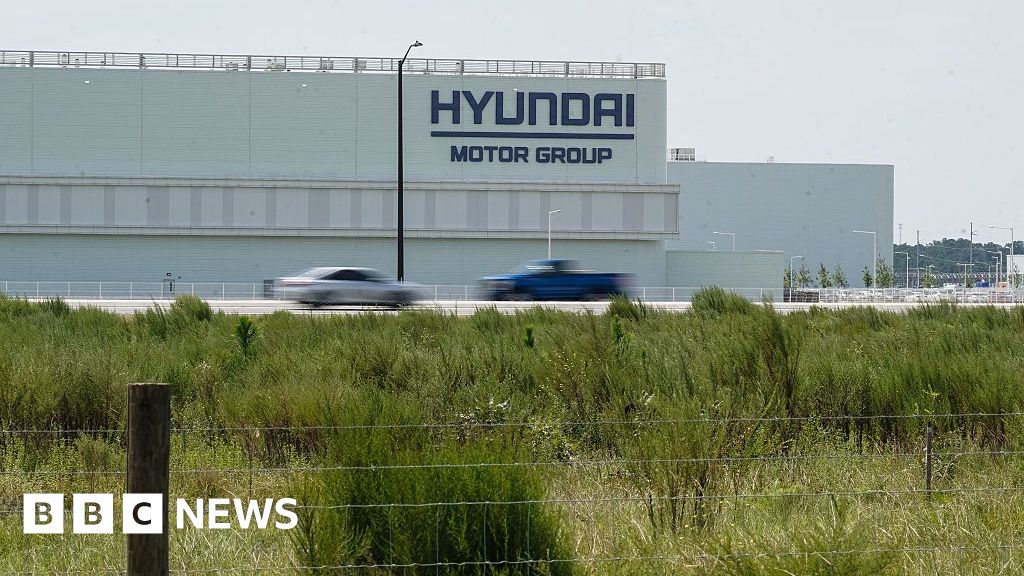A massive immigration raid at a Hyundai plant in the US will delay its opening by at least two months, according to the company.
The raid has raised tensions between the US and South Korea, where many of the workers were from, with the South Korean president warning that it will discourage foreign investment into the US.
South Korean officials have said many of the workers had been sent to the US factory temporarily to help get it going.
Hyundai chief executive José Muñoz told US media the raid will create “minimum two to three months delay [in opening the factory] because now all these people want to get back”.
The raid in the state of Georgia was the biggest in US history, leading to the detention of 475 people, including roughly 300 people from South Korea.
US immigration officials said the workers were not authorized to work in the US while South Korean officials called for its citizens’ rights to be respected.
The workers are due to return home on Friday. Their flight, initially set for Wednesday, was delayed after Trump proposed they remain in the US to continue training American workers, according to South Korean officials. All but one person rejected that offer.
Mr Muñoz said the firm is figuring out how it will fill the positions of the workers who plan to return to South Korea.
The detentions have raised questions about the viability of a trade deal that the US and South Korea had agreed earlier this year, in which President Donald Trump had agreed to drop some of his steepest tariff threats, in exchange for promises of billions of dollars of investment.
Hyundai alone had pledged $26bn (£19.2bn), including a new steel factory in Louisiana, that had been celebrated by the president at a press conference earlier this year.
The site of the raid is part of a bigger complex in Georgia that is eventually supposed to create 8,500 jobs and had been hailed as the largest economic development project in the state’s history.
None of the people arrested at the site last week were directly employed by Hyundai, according to the company.
LG Energy Solution, which operates the battery plant in Georgia with Hyundai, said that many of its employees who were arrested had various types of visas or were under a visa waiver programme.
At a press conference on Thursday, South Korea’s president said if such arrangements were no longer allowed, it would make building factories in the US “more difficult… making companies question whether it’s worth doing at all”.
